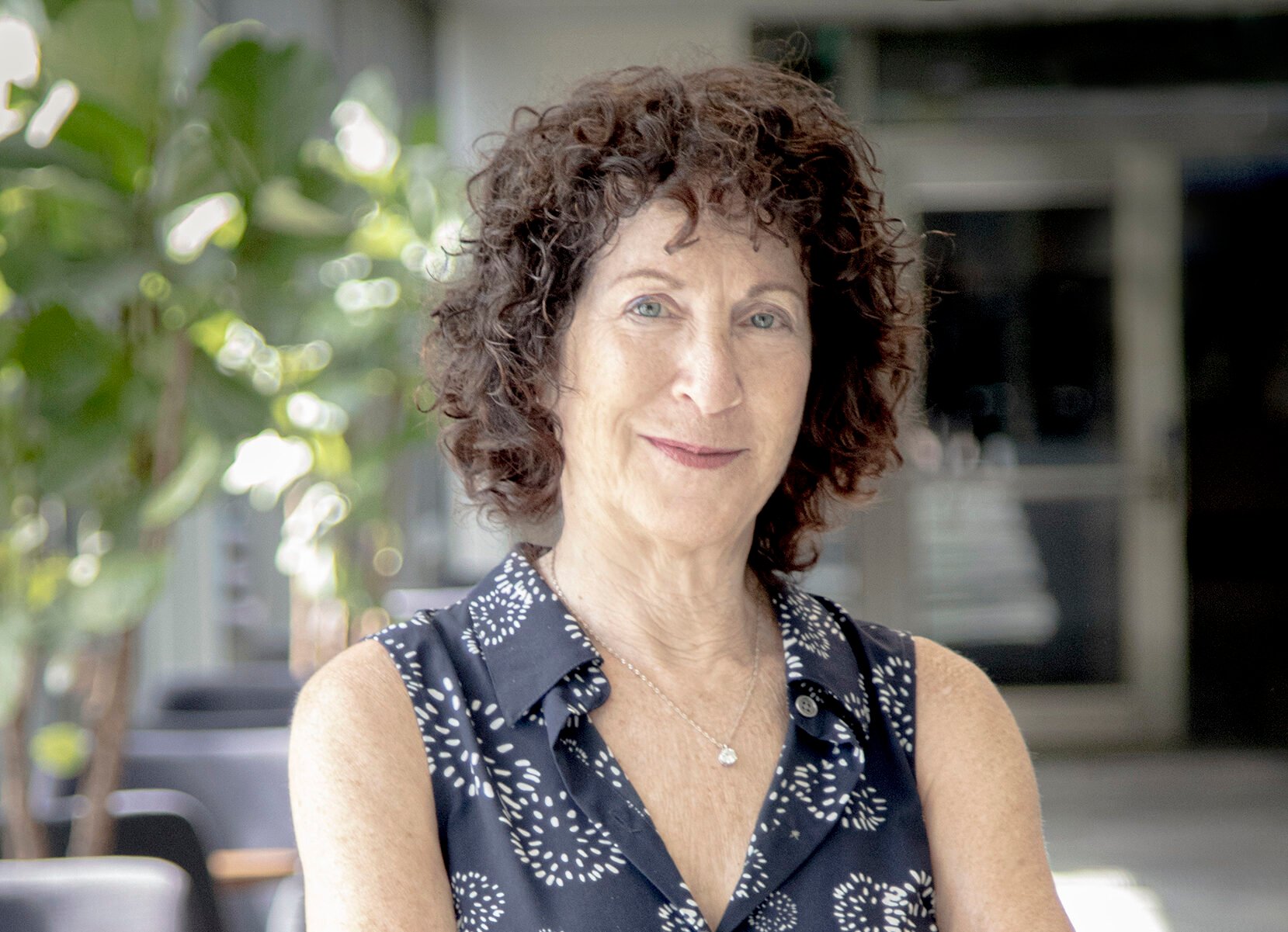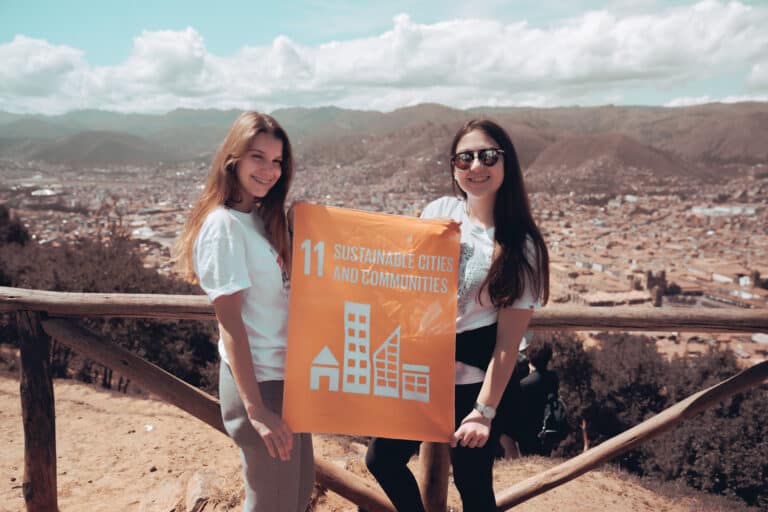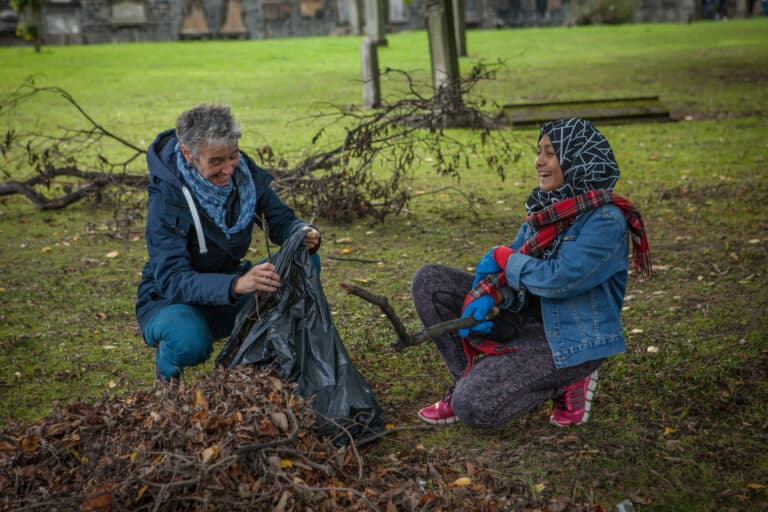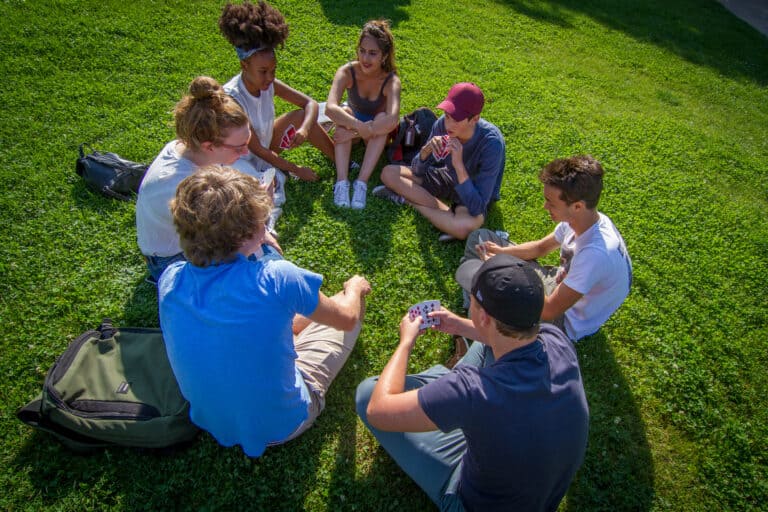Service Learning in ‘the New Normal’: An Interview with Cathryn Berger Kaye

Written by Megan Flottorp & Simon Armstrong
As we collectively process and adapt to the changes brought on by the pandemic, we feel it is critical to continue facilitating meaningful service opportunities to young learners. To further understand the potential role of Service Learning as we enter the ‘new normal,’ we talked to pioneering Service Learning expert Cathryn Berger Kaye.
An international education consultant offering award-winning expertise in Service Learning and engaging teaching methods, Cathy has played a leading role in shaping IB pedagogy and philosophy. She generously shared her insight as we discussed how Service Learning has evolved, the importance of elevating student voices, and strategies that teachers can use to help young people build local communities.
You have been instrumental in shaping the evolution of best practices in Service Learning over the last 40 years. What have you returned to in order to stay grounded in your approach to Service Learning and education through the pandemic?
Through this all, I have felt that we can stay anchored by adhering to critical aspects of Service Learning—that apply across all situations. As always, it is essential to begin any service undertaking with the student, asking what their skills, interests, and passions are—in addition to locating areas where they would like to grow and expand their knowledge. Students must take the time to do a personal inventory and discover these things on their own. We can’t resort to leaning on adults.
As students explore and guide their own journey, they will uncover authentic needs that speak to them and feel excited about their pursuit. Indeed there is so much disparity in our world, and I appreciate that, especially during these times, it can be overwhelming or hard to know where to begin. I always encourage students to take an asset versus a deficit-based approach when looking to provide service. They want to find ways they can help build up the existing resources within a community. Assets can be people, structures, the natural environment, an existing program, economic means, history, culture, and more. Focusing on the assets that are present in any situation is an excellent way to stay grounded and positive.

What examples of successful Service Learning adaptations have you tapped into during the pandemic?
There have been so many wonderful projects! The creative things that young people are doing across the arts, and the innovative ways they use technology is genuinely stunning. One initiative that I particularly love came from Luanda International School. When they discovered that some communities in their home country of Angola did not have access to masks, they began devising a multi-faceted strategy to provide this critical resource while empowering the local community. Aptly named, Masking Angola, the team raised funds and distributed the material needed so the community could fashion homemade masks. They also created a series of infographics raising awareness about safe practices. It is an ongoing reciprocal effort rooted in enfranchising local communities, building relationships, and collaboration.

Are they any instances of Service Learning strategies that you found have been less effective?
With less direct contact between communities, it can be challenging for some young people to appreciate that just because a certain group has less material wealth, they are not lacking in others areas or are necessarily disenfranchised. It is crucial during these times, that we resist reinforcing stereotypes. I think this tension is explored poignantly in the work of Nigerian writer Chimamanda Adichie. Her brilliant TED talk, ‘The Danger of a Single Story,’ describes the effects that labels can have on how we think about ourselves and others. Adichie argues that single stories often originate from simple misunderstandings or one’s lack of knowledge of others, but that these stories can also have a malicious intent to suppress other groups of people due to prejudice. She asserts that media and literature available to the public often only tell one story, which causes people to generalize and make assumptions about groups of people. We must resist this in our service work and encourage students to dig deeper.
How do we facilitate this process and assist students in identifying where to focus their service?
MISO is my go-to tool to help students during the investigation stage of Service Learning pedagogy. Representing ‘media, interview, survey, and observation,’ it serves as a reminder to students that research is more than just a Google search. It is re-looking and adding to the body of knowledge based on new examination. Consulting multiple sources of information by following the MISO methodology is an efficient way to construct a new understanding of a topic. MISO also helps students organize their inquiries. They decide which of their questions would be best answered by the media, an interview, a survey, or an observation.
It is a wonderfully expansive way to explore different areas for action while maintaining the quality of flexibility needed for truly impactful service. It is true that ultimately an authentic need should be delineated, and students should focus their efforts, but I think it is always more productive to begin with the bigger picture. Once students map out all the issues they want to engage with and areas where they wish to effect change, they can begin finding connections and determining the best place to start.

It is so important to provide opportunities for young people to stay engaged. What are the most effective ways students can adapt their service to support communities and institutions in need right now?
Some of the most effective actions I have seen lately involve finding unique and unusual ways to educate. There are so many avenues for engaging others through the service of providing useful information. On Earth Day, I was walking through my neighborhood and saw a sign with three facts about the planet. They were things I did not know, and I have written a book about our planet! That got my attention.
Students derive more meaning from their school work when they can share it with others. Using a research paper assignment to accumulate information for an organization that could benefit from it is powerful and necessary work that is also likely to help students approach their homework with more enthusiasm.
Do you have any advice for teachers and schools who are regrouping and aligning their service programs for the next academic year?
Look at the resources that exist within the community. If ever, now is the time to take a good look around and learn about those we interact with every day. We need to find out about the resources that are right at our fingertips, what different skills community members have, and how they can complement one another.
Leaning into the United Nations Sustainable Development Goals is also a hugely productive strategy. The fact is that none of these goals exists in isolation and that their interconnect nature helps provide vision and context to Service Learning activities.
Do you have any advice for teachers who are struggling to adapt or feel frustrated by a situation that is still full of so much uncertainty? How can they feel more empowered going forward?
At this time, I think it does us all good to remember that great learning always has an element of chaos and that we should embrace the uncertainty our current situation provides. Adults are inclined to impose order and structure, especially when faced with a challenge. The truth is, though, that Service Learning resists this. It is full of surprises, and that is the best part!
The way we absorb the benefits from all the twists and turns is through reflection. And reflection is not something we can cross off a list. As educators, we need to provide opportunities for students to witness us reflecting too. These are challenging times for everyone, but by taking a few minutes each day to just sit with our experiences, we begin to find a sense of peace and are better prepared to generate new ideas and solutions.
CAS Trips have been working closely with Cathryn to create our new CAS Induction Workshops.
Produced in response to the challenges that have occurred for schools’ CAS programs as a direct result of COVID-19, the program has been designed to help students enhance their CAS portfolios while motivating them to overcome the pandemic’s challenges and fully grasp the vital elements of the IBDP. You can learn more about our CAS Induction Workshops at www.castrips.org/cas-induction-workshops/.
Author Bio
As an ESL, English Language and Literature Teacher and Coordinator, Simon worked at international schools in Indonesia, Switzerland, Brazil and Canada before settling in Prague, Czech Republic. In the ancient Czech capital, Simon also discovered tour guiding as a means to satisfy his thirst for history and showmanship on the weekends. This foray into the travel and tourism industry, combined with his extensive knowledge of the International Baccalaureate program and the desire to make the world a better place, resulted in the creation of CAS Trips in 2013.
Find more articles like this here: www.internationalschoolparent.com/articles/
Want to write for us? If so, you can submit an article for consideration here: www.internationalschoolparent.submittable.com
